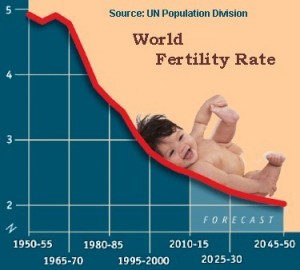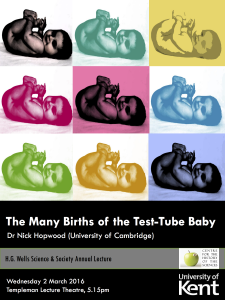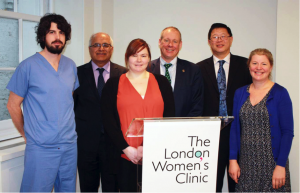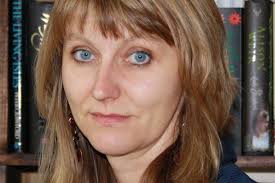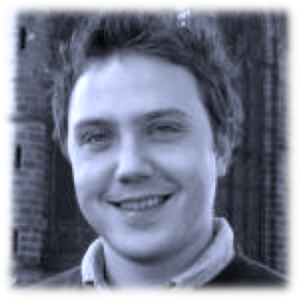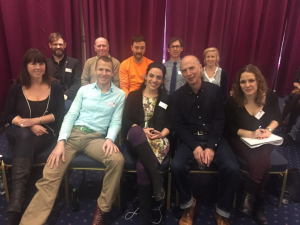‘How Can a State Control Swallowing?’ Medical Abortion and the Law.
The Medical Society of London, 12.45-5.15, 23 March 2016
Professor Sally Sheldon (Kent Law School and Deputy Director, CISoR) will launch the findings of her AHRC-funded research into the legal implications of abortion pills at this event, where she will be joined by a panel of speakers with expertise in relevant law, medicine and policy. A light lunch and drinks will be provided. Attendance is free but numbers are limited and advance registration is required. A small number of bursaries are available to support the attendance of students. For more details and to register, see here
Informed consent and ART
CISoR members, Sally Sheldon (KLS), Darren Griffin (Biosciences), Ellie Lee and Jan Macvarish (SSPSSR) are undertaking exploratory research into informed consent practices in assisted reproduction. The Wellcome Trust has awarded Sheldon a small grant (£4,242) to support a pilot study that will potentially laying the groundwork for a larger project. The work takes its starting point from the fact that infertility treatment services have sometimes been subject to accusations that profit has been prioritised over patient benefit, with patients encouraged to undergo costly, unnecessary, experimental treatments which are unlikely to succeed. However, there is little high quality analysis that allows for an objective assessment of the merits of such claims and little research exploring patients’ experience of informed consent in this area. The larger project will potentially aim to fill that gap.
Global reduction in fertility – What’s going on?
In the first paper, Oskar and Daniel Hruschka of Arizona State University examine how the variation in fertility changes during a general overall decline. Many investigations have looked at changes in the average fertility behaviour, and have usually focused on national or county-level data. Hruschka and Burger however analyse individual-level data from the Demographic and Health Survey, looking at fertility data on women from 92 low- and middle- income countries. They show that a great deal of the variation among individuals is due to chance rather than to measurable individual differences. This means that chance might have more to do with fertility outcomes than characteristics such as education or wealth.
The many births of the test-tube baby
Dr Nick Hopwood, University of Cambridge
Sponsored by the Centre for Interdisciplinary Studies of Reproduction (CISoR) and The Centre for the History of the Sciences
Wednesday 2nd March 2015, 5.15pm
Born following in vitro fertilization in Oldham in 1978, Louise Brown made global news as the first ‘test-tube baby’. Yet since the 1940s various researchers had already reported having fertilized human eggs to produce embryos and even infants. The lecture will ask how they pressed these claims and how their colleagues assessed and contested them. The answer will pay special attention to the negotiation of standard criteria in journals, textbooks and newspapers, at conferences and on television. The result will be fresh perspectives on a founding achievement of reproductive biomedicine and on communication in science after World War II.
From Bench to Bedside in Reproductive Genetics
A recently awarded Knowledge Transfer Partnership (KTP) project is already delivering exciting results. The 30 month project recently established between Professor of Genetics, Darren Griffin, at the School of Biosciences and the London Women’s Clinic (LWC) will enable the Clinic to screen for couples at risk of transmitting chromosome abnormalities in human embryos. Professor Griffin and Professor Alan Handyside at The Bridge Centre, now part of LWC, jointly developed a universal means of detecting any genetic disease in an IVF embryo in 2010. The process was called ‘Karyomapping’ and will form part of the project.
LWC is one of the leading centres for infertility treatment and women’s health services in Britain. The clinic is based in Harley Street, London and has a number of satellite clinics around the country including one recently opened in Canterbury in December of last year. The Associate, Dr Becki Gould, a recent PhD graduate of Professor Griffin’s lab is responsible for delivering the KTP project on a day-to-day basis. She will take on the temporary role of an andrologist at the Canterbury clinic providing valuable new knowledge to the team. She will also be Patient Coordinator for the new “One by One Plus” programme that aims to reduce the cost of IVF while improving its success rate through genetic screening. Much of the groundwork has already been done, in part through Becki’s efforts, and LWC announced the launch of the programme at a meeting in London last week.
Knowledge transferred through this project will enable the highest quality of genetic diagnosis and screening and Becki is looking forward to playing an integral role in the Clinic under the guidance and support of Professors Griffin, Handyside and the LWC team.
From left to right, Dr Christian Ottolini (Company Supervisor and recent PhD graduate of Prof Griffin’s lab); Dr Kamal Ahuja (Scientific and Managing Director of LWC); Dr Becki Gould (KTP Associate); Prof Darren Griffin; Eddie Kuan (Special Projects Manager at LWC); Clare Witcher (Knowledge Transfer Officer, University of Kent).
Professor Sally Sheldon awarded £0.5m for biographical study of Abortion Act
Professor of Law, Sally Sheldon has been awarded more than £0.5m to conduct a unique two-year biographical study of the Abortion Act.
The grant of £512,000 has been awarded by the Arts and Humanities Research Council (AHRC) to Professor Sheldon for a research project called ‘The Abortion Act (1967): a Biography’. The project will begin in May 2016 and its findings will be launched at the Houses of Parliament on 27 April 2018, the fiftieth anniversary of the Abortion Act coming into force.
Professor Sheldon said: ‘This project offers a historical study and biography of the Abortion Act, taking seriously the idea of ‘living law’: law exists only in its interpretation and while the text of the Abortion Act has changed little since 1967, its interpretation has evolved significantly.’
The project will draw on extensive archival research (some of which has only recently come into the public domain), around 20 interviews with people who have extensive experience of working with the Act, and library research.
The project has two methodologically innovative features; the application of biographical methodologies to the study of statute; and the application of comparative methodologies to the study of the same law as interpreted within the countries that make up the UK.
Professor Sheldon will be working with Dr Gayle Davis (Co-Investigator), a senior lecturer in the School of History, Classics and Archaeology at Edinburgh. The team also includes two postdoctoral researchers; Jane O’Neill, who is currently finishing a PhD at Edinburgh and the second, yet to be appointed, will be based at Kent (apply online by 7 February 2016).
Intended project outcomes include a book; a range of academic articles in law, history, sociology and gender studies journals; a series of shorter papers for practitioner journals; at least nine conference papers; teaching packs for schools; and active dissemination of research via the media and social networking sites.
A project website will be a key reference point which will provide copies of all publications, further reading, links to further resources, and a special section with resources for schools. The website will also host an engaging online exhibition, accessible to a wide audience and bringing together key findings, extracts from the oral histories and key documents from the archives.
Professor Sheldon said: ‘The Act has clearly lived through interesting times and, in line with the best biographies, this account of its life will aim also to offer a window into the seismic broader changes that have occurred since 1967. In this sense, the story of the Abortion Act is also the story of evolving ideas of gender and family; the development of the NHS; changes to abortion technologies and the ethical values that inform modern medicine; shifting demographics, including in the religious and ethnic make-up of the UK; and the ongoing negotiation of the UK constitutional settlement.
‘My hope is that the project will offer a far more detailed understanding of the operation of the Abortion Act in historical and geographical contexts. We also hope that a close study of the Abortion Act can offer a window into the times in which it ‘lived’. And I would hope also to show that the use of biographical methodologies can offer something of value to other legal scholars, who work in very different areas of law and, likewise, that one can usefully apply comparative methodologies for studying how the same piece of law operates across borders within the UK.’
Professor Sheldon teaches Health Care Law and Ethics to undergraduate and postgraduate students at Kent Law School. She is a leading expert and commentator on the regulation of abortion in the UK and contributed to a discussion about the decriminalisation of abortion at the House of Commons in October 2014. She is Deputy Director of Kent’s Centre for Interdisciplinary Studies of Reproduction (CISOR).
Professor Sheldon has published widely in the area of health care ethics and law with books including Beyond Control: Medical Power and Abortion Law, a co-edited collection of essays on Feminist Perspectives on Health Care Law and a socio-legal study of fatherhood called Fragmenting Fatherhood, co-authored with Richard Collier of Newcastle Law School. Her current research, which centres on the legal implications of abortion pills, is supported by an AHRC fellowship.
CAFÉ SCIENTIFIQUE – Maintaining the reproductive edge: Should UK companies pay for employee social egg freezing?
CAFÉ SCIENTIFIQUE – Maintaining the reproductive edge: Should UK companies pay for employee social egg freezing?
6.30pm-8.30pm Tuesday 8th December
YE OLDE BEVERLIE
St Stephen’s Green, Canterbury, Kent CT2 7JU
Antony Blackburn-Starza – Progress Educational Trust , Centre for Interdisciplinary Studies of Reproduction (CISoR)
The session will be moderated by:
Professor Darren Griffin – School of Biosciences, University of Kent, Centre for Interdisciplinary Studies of Reproduction (CISoR)
A light buffet will be provided – Thanks to the University of Kent Public Engagement with Research Fund
Born this way!
A symposium on multidisciplinary approaches to sexuality and gender
On November 24th, researchers from several institutions came together with over 100 delegates in Darwin College to discuss a variety of perspectives aimed at understanding the biological basis of sex, sexual orientation, and gender. Jointly hosted by CISoR and the Biological Anthropology research group in the School of Anthropology and Conservation the workshop considered perspectives from biology, psychology, anthropology, and sociology. The audience was treated to a journey from the chromosome, through a prism of the mind and culture, ending with fully applied perspectives.
Overall it showed a variety of viewpoints on a complicated topic and facilitated conversation and lively debate across disciplines.
Participants in the ‘Born this way’ workshop. Back row (left to right): John Gilmore, Steve Lyon, Jamie Lawson, Oskar Burger, Carin Tunaker. Front row: Marian Duggan, Gerulf Rieger, Diana Fleischman, Peter Goodfellow, and Sarah Johns.
Peter Goodfellow (University of Kent) gave an overview of how chromosomes influence the biology of sex, highlighting decades of his research on the role of how the SRY gene determines sex in mammals, including humans. This was followed by Gerulf Rieger (University of Essex) who has looked for interesting links between childhood gender non-conformity and sexual orientation during adulthood. Diana Fleischman (University of Portsmouth) presented fascinating work about how sexual activity is a form of “making affiliations” among people, suggesting that same-sex sexual contact is no more mysterious than any other form of social bonding or contact. Jamie Lawson (University of Durham) used an innovative ‘Q-step’ methodology to show how problematic gender categories can be in failing to capture actual associations in the terms people use to describe gender. Steve Lyon (University of Durham) then gave a fully ethnographic example from Pakistan, where sex between men is often not linked to homosexuality and a third gender of people (the Khwaja Sara) are often raised apart from their families where they may receive some protection from a social environment that can treat gender non-conformists harshly. Steve’s work also linked to problems of low rates of condom usage and how this affects the spread of HIV. The final speaker of the day, Marian Duggan (University of Kent), showed how attitudes toward same-sex marriage have changed globally and gave a detailed sociological analysis of the recent referendum in Northern Ireland.
After the series of six talks the event concluded with a panel discussion and debate. The expert panel included the six speakers along with John Gilmore (Canterbury Christ’s Church University), Sarah Johns (University of Kent), Carin Tunaker (University of Kent), and Darren Griffin (University of Kent). The discussants, with audience input, addressed challenging topics such as how to understand homophobia, and its causes, as well as what types of research should be prioritized (or avoided) based on concerns of ethics vs. scientific freedom. While difficult topics were certainly addressed, all participants seemed to think that more dialogue of this type should happen in the future.
Conference: Policing Pregnancy: A one-day conference on maternal autonomy, risk and responsibility
Wednesday 13 April 2016, Royal College of Physicians, London
A collaboration between British Pregnancy Advisory Service (BPAS), Birthrights and the Centre for Parenting Culture Studies. The event is of interest to practitioners, advocates, academics, policy makers, journalists – and anyone else who is concerned about the expansion of risk thinking and its effects for the autonomy and choice-making ability of women.
https://www.tickettailor.com/checkout/view-event/id/32028/chk/1c27


